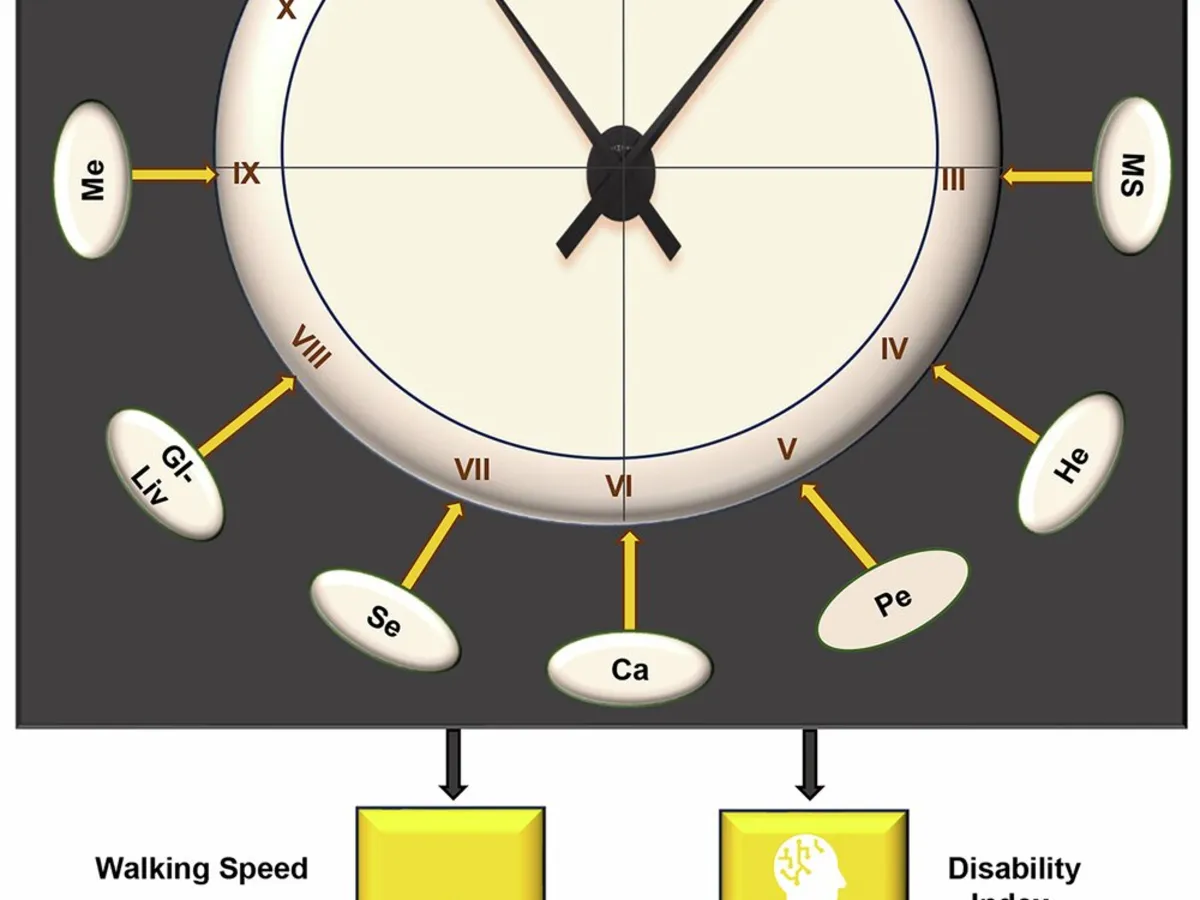
A groundbreaking health-assessment tool has emerged, utilizing eight key metrics derived from routine physical exams and laboratory tests to provide insights into an individual's biological age. This innovative approach may outperform traditional health predictors in forecasting risks related to disability and mortality. Researchers at the University of Washington School of Medicine outlined their findings in a study published on May 5 in Nature Communications.
The method, known as the Health Octo Tool, holds the potential to unveil new factors influencing aging and to facilitate the development of interventions aimed at extending lifespan. Dr. Shabnam Salimi, the report's first author and a physician-scientist at the Department of Anesthesiology & Pain Medicine, emphasized the importance of this tool in identifying biomarkers and therapeutic strategies that target both organ-specific and overall aging rather than focusing solely on individual diseases.
The Health Octo Tool is rooted in the concept of health entropy, which refers to the cumulative molecular and cellular damage the body experiences over time and its consequent impact on organ and system functionality. By leveraging health entropy, this tool can provide a comprehensive measure of an individual’s overall physical well-being and offer insights into their aging process.
The researchers conducted an extensive analysis of data from the Baltimore Longitudinal Study on Aging, one of the longest-running studies tracking adult health over time. This data encompassed participants' medical histories, physical exam results, and laboratory test outcomes. To validate their findings, the team also analyzed data from two other large studies involving over 45,000 adults.
The research team pioneered the creation of the Body Organ Disease Number, a scoring system that accounts for the number of affected organ systems, including cardiovascular, respiratory, and central nervous systems, as well as instances of cancer or stroke. This score, ranging from 1 to 14, allows for a nuanced understanding of how organ systems age at different rates.
To further enhance their analysis, the researchers introduced the Bodily System-Specific Age metric, reflecting the aging rate of each organ system, and the Bodily-Specific Clock, which indicates each organ system's intrinsic biological age. By extending this concept to the entire body, they defined the Body Clock as a composite measure of overall intrinsic age and Body Age as the corresponding aging rate.
Recognizing that individuals of the same biological age may experience differing levels of functional decline, the researchers developed additional metrics: Speed-Body Clock and Speed-Body Age, which correlate biological age with walking speed, a common functional measure in older adults. Furthermore, the Disability-Body Clock and Disability Body Age were created to evaluate how intrinsic aging influences the risk of cognitive and physical disabilities.
One of the study's significant findings revealed that even minor health issues—such as untreated hypertension in early life—can substantially impact aging later on. This underscores the importance of early intervention in managing these conditions for long-term health benefits.
The research team is currently working on a digital application designed to empower individuals and their healthcare providers to determine their biological ages and monitor their aging rates. This app will allow users to visualize the effects of lifestyle changes—such as new diets or exercise routines—and treatments aimed at longevity, providing a clearer understanding of how both their bodies and organ systems respond over time.
The Health Octo Tool represents a significant advancement in the field of aging research, providing a comprehensive framework to assess biological age and its implications for health. With further development, this innovative tool could revolutionize how we approach aging and longevity, ultimately leading to improved health outcomes for individuals across all age groups.